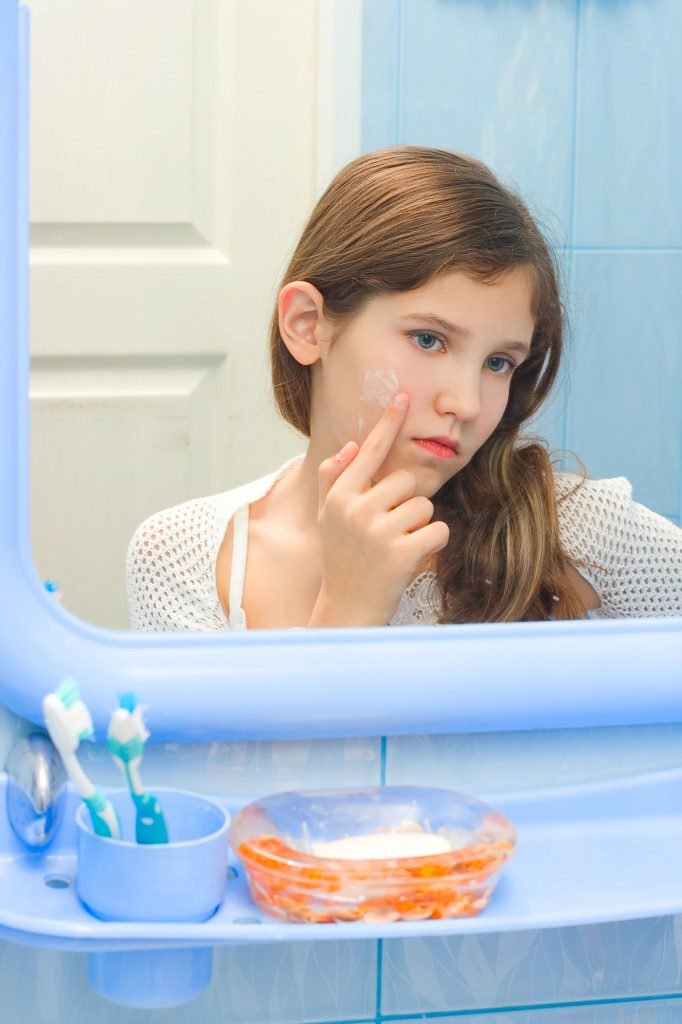Most of us remember the trouble caused by acne when we were teenagers, which can be anywhere from a minor annoyance to (more rarely) a major medical problem. Many parents, however, are surprised at how young acne begins now in their children. They are not mistaken: Preteen acne is occurring earlier and earlier and no one is quite certain why.
Acne is a hormonal disease (which is why there are no five-year-olds with acne). It occurs in response to changes in the oil glands of the face and body that occur before and during puberty. Many parents are surprised to learn that puberty is occurring earlier and earlier for children these days, especially for girls who now often develop early acne as young as 8 or 9 years old.
There are many theories as to why children are entering puberty (and getting acne) earlier. Antibiotics and hormones used in cows which produce meat and milk are a common concern. Organic meat and milk raised without hormones may or may not decrease the exposure to these growth hormones. Pesticides used on vegetables and fruits are also a potential source, as are certain plastics (like bisphenol A or BPA) which may mimic estrogen in the body. None of these theories is confirmed as the cause of earlier puberty and it may be some other environmental factor we have not discovered.
A child’s (and parent’s) reaction to this early acne can vary considerably. Sometimes the child does not even notice it and it is more bothersome to his or her parents than it is to the child. Some children are very bothered by it and, like all acne, it can make their social and school life more difficult. Helping your child understand what is happening can help decrease the stress associated with early puberty and acne, as can successful treatment. It can also be emotionally hard on parents, who see it as a sign their child is growing into the first stages of adulthood.
Most children first experience comedonal acne, which is blackheads and whiteheads on the nose and central cheeks. It often does not bother them at first. Washing aggressively and scrubbing does not help much and can lead to irritation and more redness. Over the counter washes with salicylic acid may be helpful if used gently, otherwise see your dermatologist for one of several modern versions of Retin-A, which are particularly good for this type of acne. These medications can dry out the skin if overused, so be sure to ask your doctor for the right amount and schedule to apply it.
As children hit full puberty, acne can often worsen around age 14-18 with more red pimples and sometimes deep, painful nodules. This type of acne can be more serious and leave permanent scars, so see your dermatologist right away if it develops for more aggressive treatment.
Looking to Visit a Dermatologist for Acne Treatments?
We have multiple locations throughout the country, so fill out our simple online form to get in touch with us. One of our local team members will reach out to you shortly to answer your questions or schedule an appointment for you to visit us soon.
Find a location near me
or

